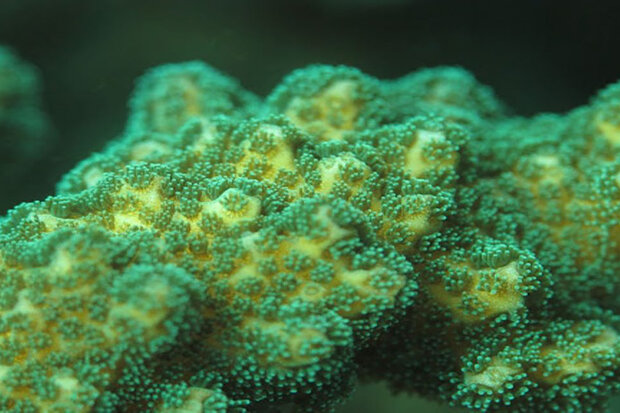Four decades of coral research lead to an exciting discovery for tropical Pacific corals

Heat-tolerant algae give corals a survival edge in warming oceans. Credit: NOAA AOML

Heat-tolerant algae give corals a survival edge in warming oceans. Credit: NOAA AOML
A heat-tolerant algae found in some tropical Pacific corals can make reefs more resilient to heatwave events, according to an exciting new discovery reported in the Proceedings of the National Academy of Sciences. Researchers with University of Miami’s Cooperative Institute for Marine and Atmospheric Studies (UM-CIMAS) and NOAA’s Atlantic Oceanographic and Meteorological Laboratory (AOML) examined four decades of temperature, coral cover, bleaching, mortality data from three mass bleaching events, and symbiont community data from the last two. Scientists found that a symbiont algae helped corals better tolerate heat stress, increasing their resilience to warming ocean temperatures.
Global warming is causing the loss of coral reefs worldwide, as a result of heat-induced coral bleaching and mortality. However, some coral reefs exposed to temperature-induced bleaching develop tolerance to subsequent events, possibly due to changes in their symbiotic algae communities. Over the past 40 years, scientists from the University of Miami, NOAA, and partners have been monitoring reefs in the eastern tropical Pacific region, culminating in an interesting discovery.
Read more at the link below.